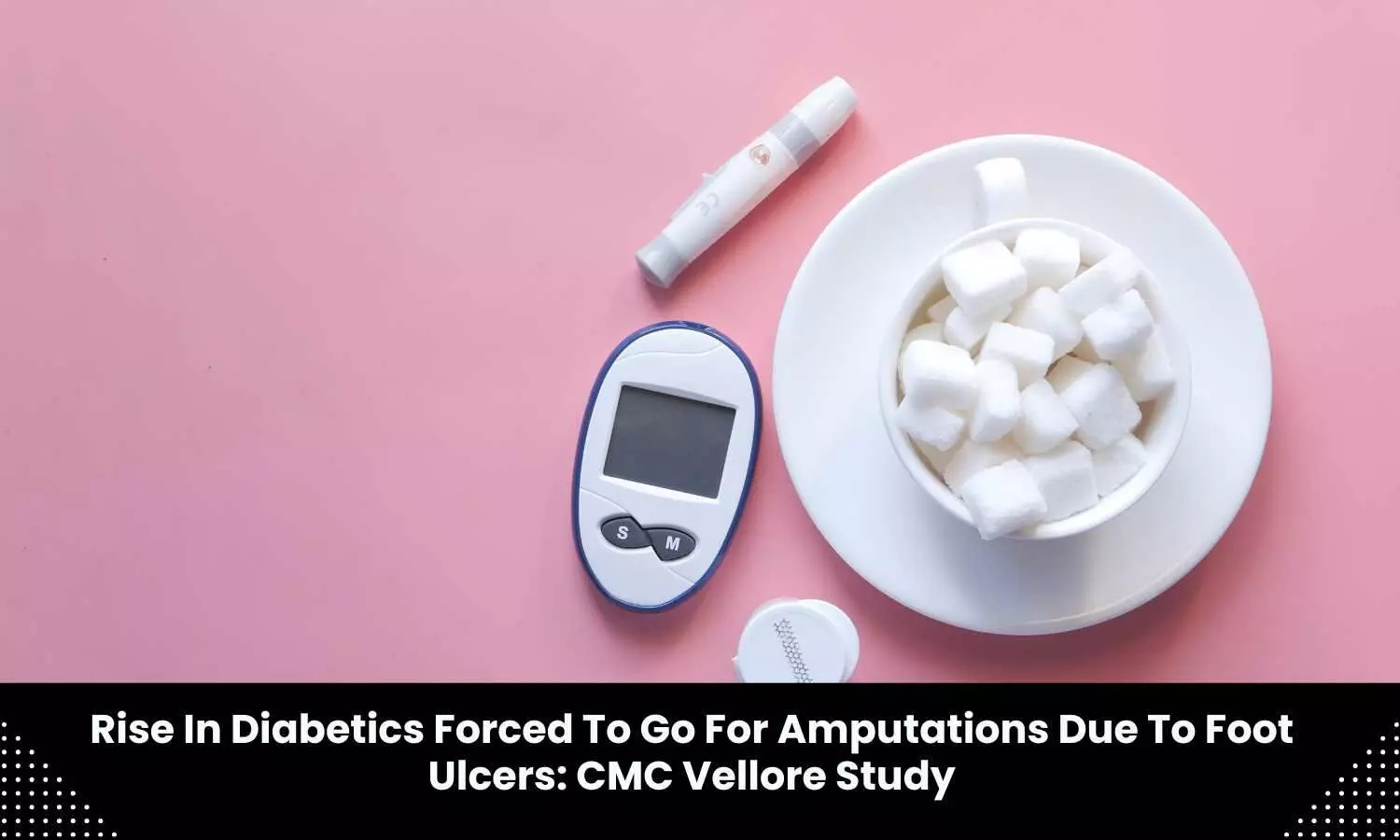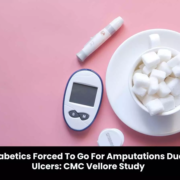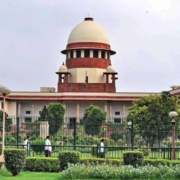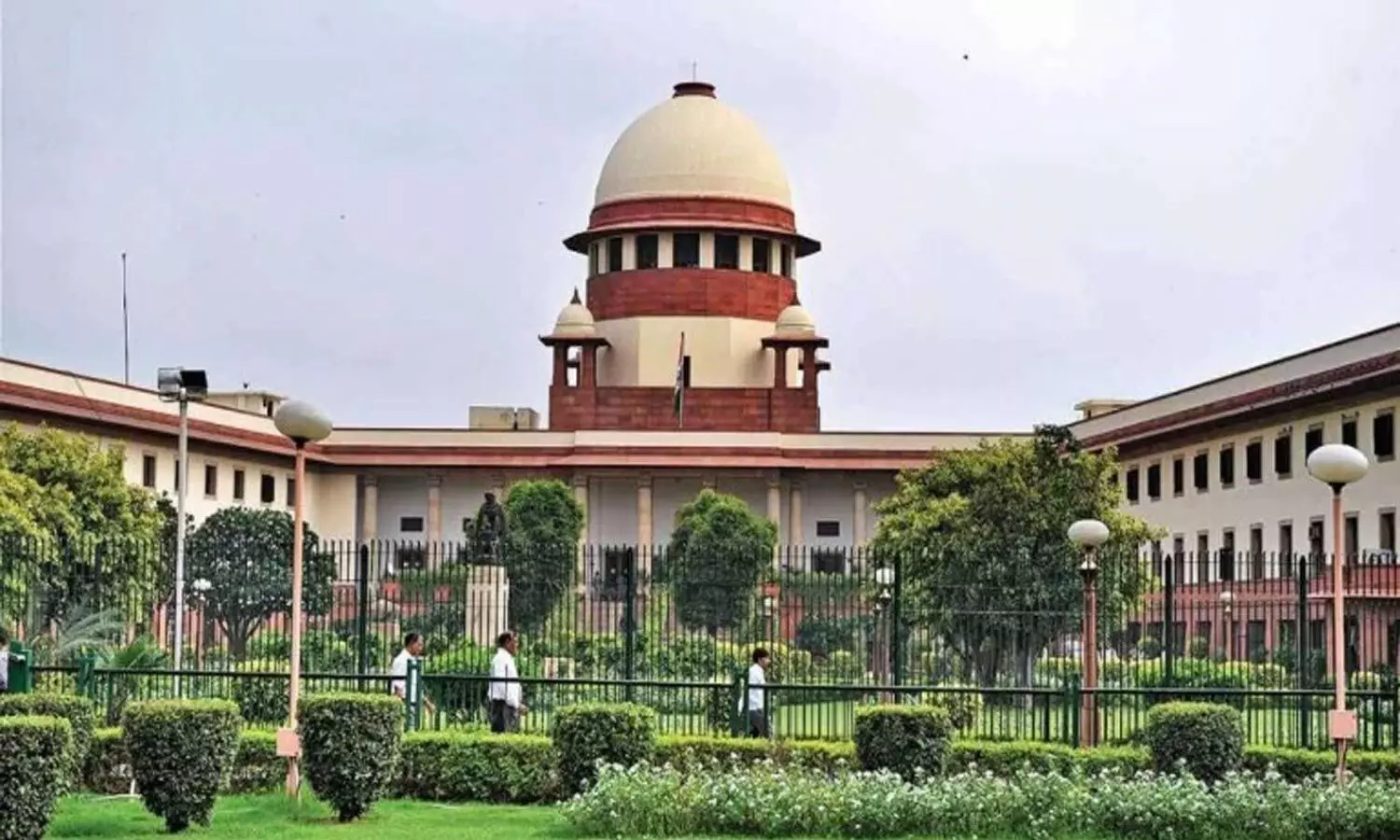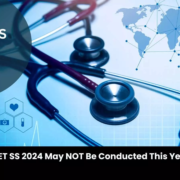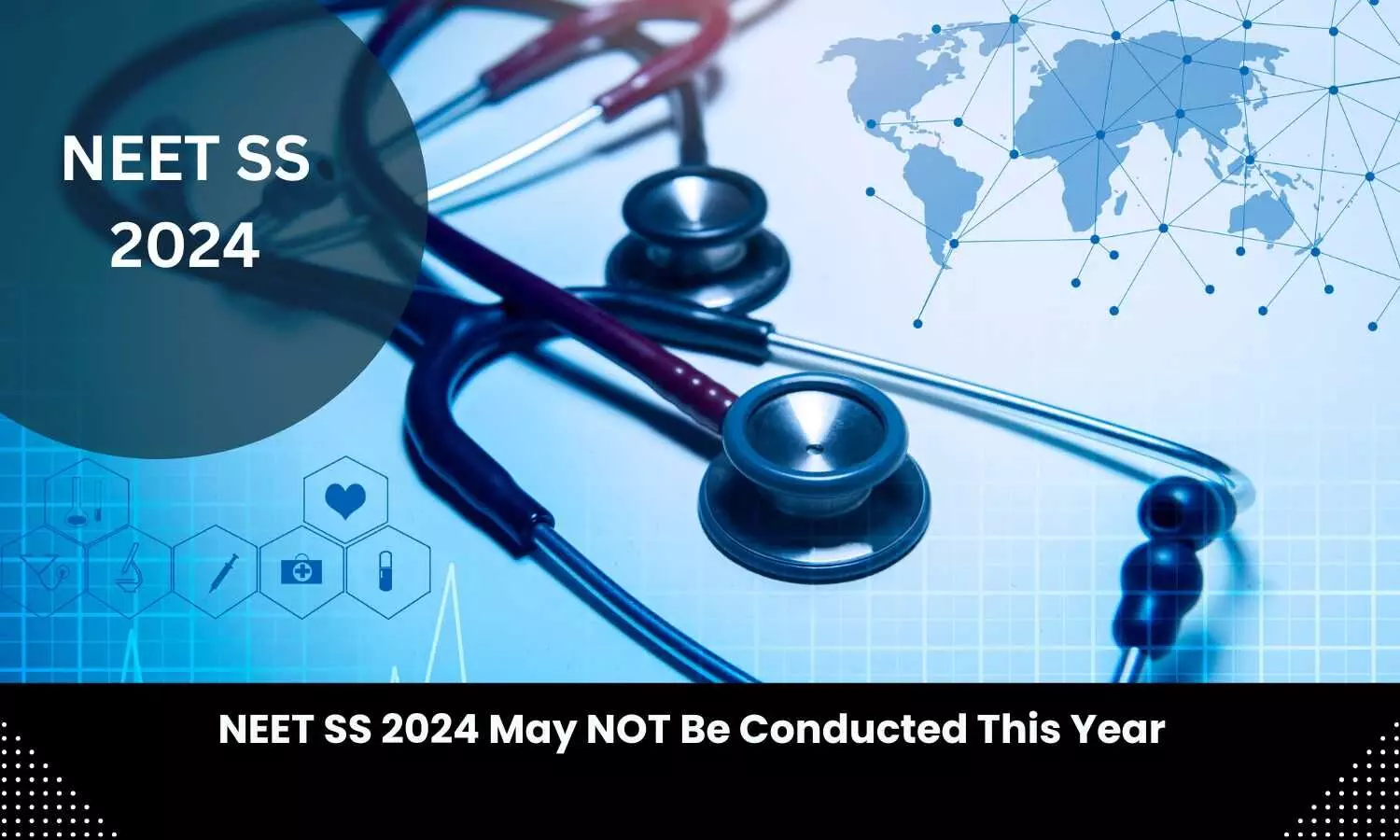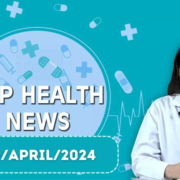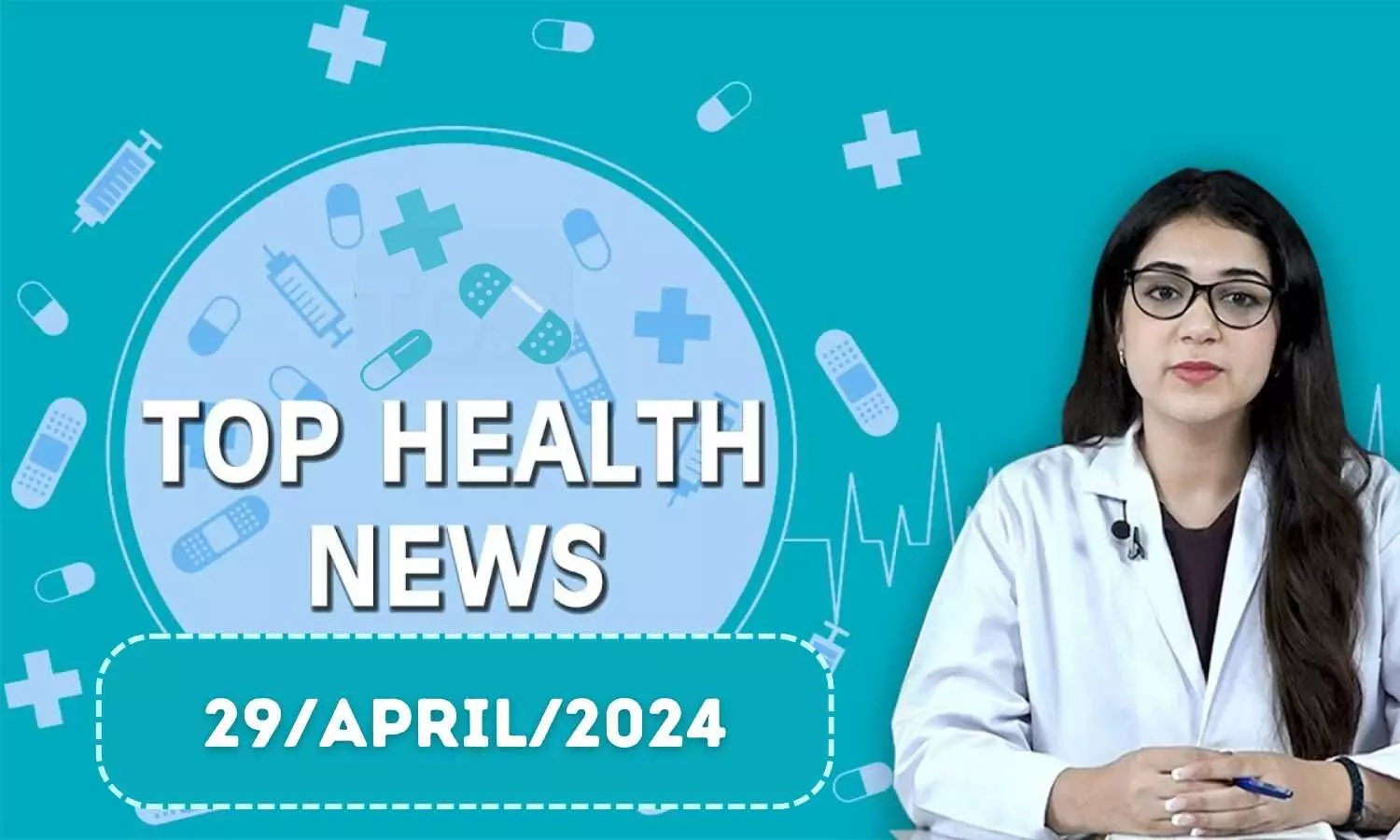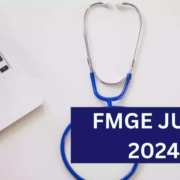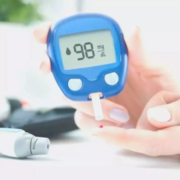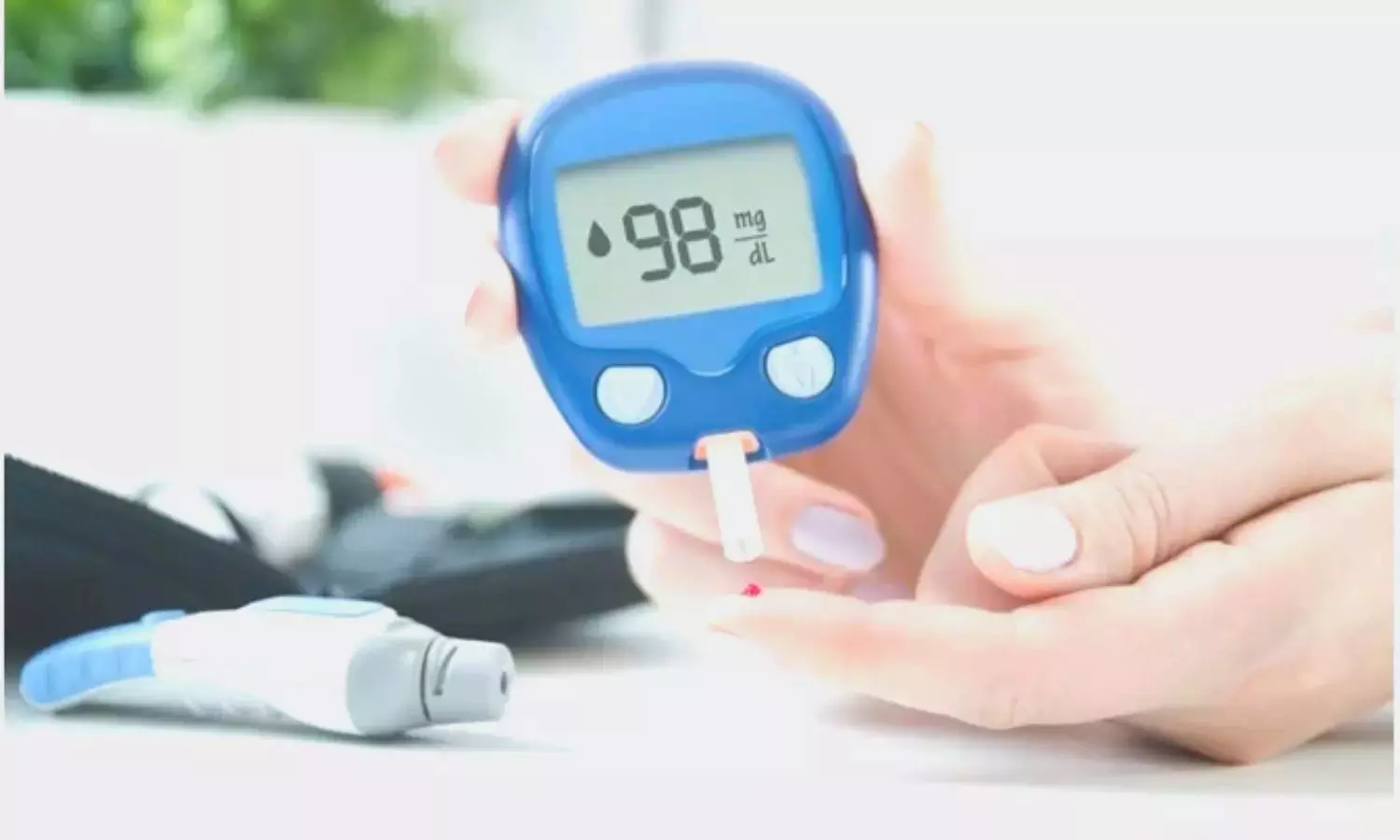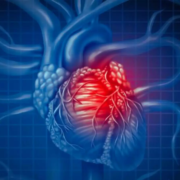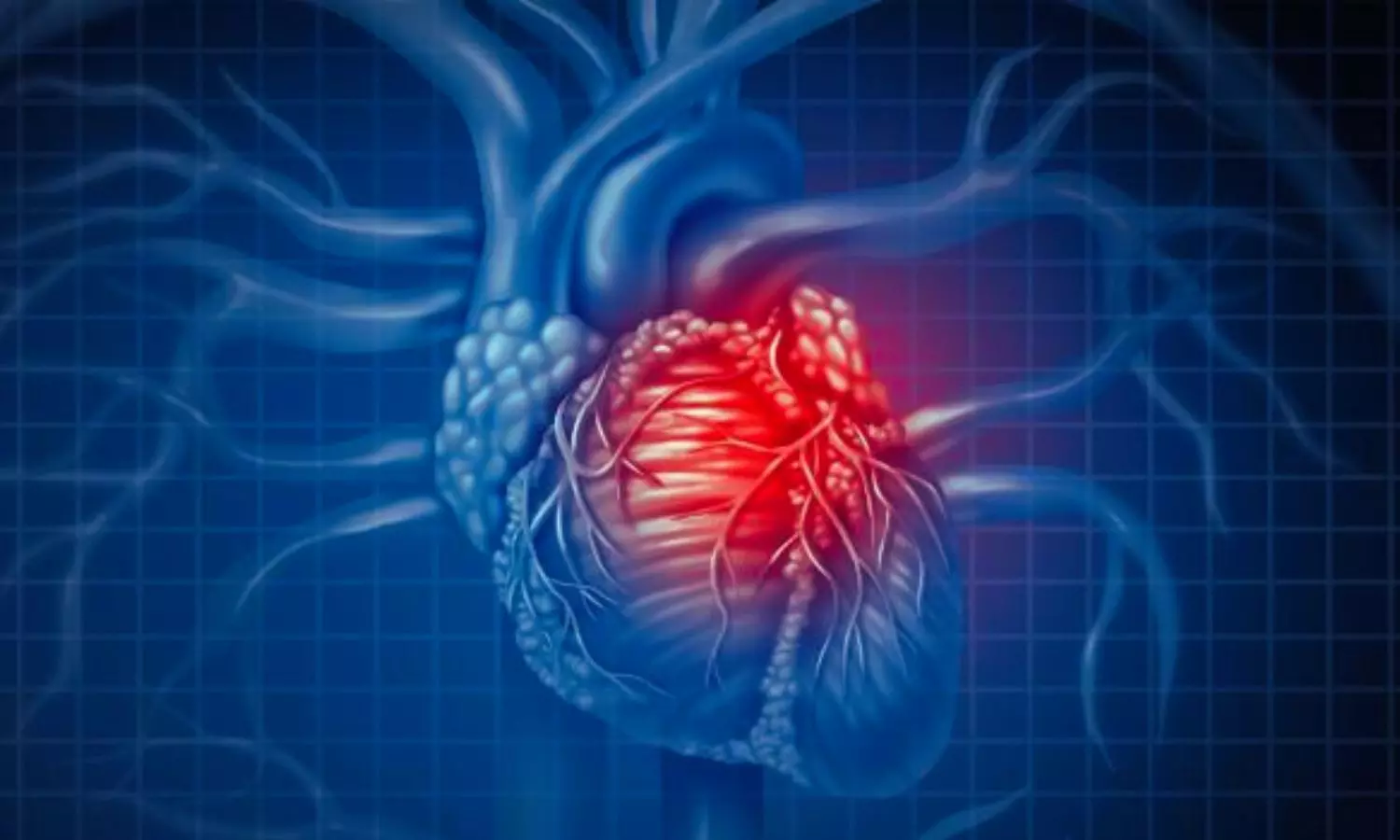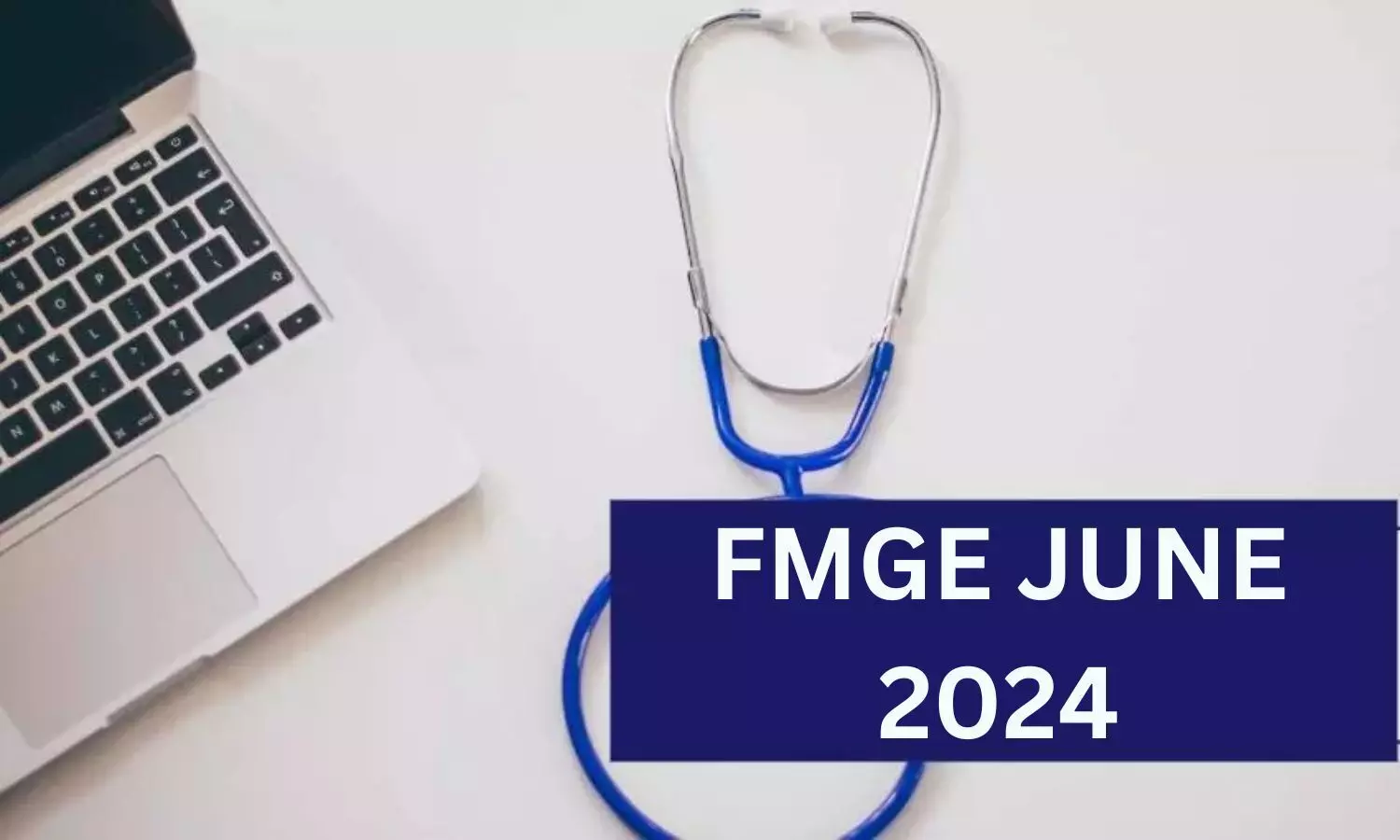
New Delhi- The National Board of Examination in Medical Sciences (NBEMS) has invited applications for the Foreign Medical Graduate Examination- FMGE June 2024. For candidates appearing for FMGE, NBE has also released an information bulletin detailing the instructions to fill out the online FMGE application form for June 2024.
FMGE for June 2024 will be conducted on 6th July 2024 on the computer-based platform at various testing centres across the country. The candidates can submit the application form for FMGE June 2024 online from today i.e. 29th April 2024 on the official website of NBE, valid till 11:55 pm on 20th May 2024.
IMPORTANT DATES
|
S.NO
|
PARTICULARS
|
DATES
|
|
1
|
Online Submission of Applications.
|
29th April 2024 to 20th May 2024 (Till 11:55 PM).
|
|
2
|
Edit Window for All Payment Success Applications (Any information/documents can be edited except Name, Nationality, Email, Mobile number and Test City).
|
24th May 2024 to 28th May 2024.
|
|
3
|
Final Edit Window to rectify Deficient/Incorrect Images (No further opportunity shall be given)-
1 Photograph.
2 Signatures.
3 Thumb Impression.
|
7th June 2024 to 10th June 2024.
|
|
4
|
Opportunity to rectify deficiencies related to documents uploaded in the application-
1 Primary Medical Qualification Certificate (PMQC).
2 Apostille/Attestation of PMQC by the Indian embassy concerned.
3 Eligibility Certificate or Admission Letter.
4 Proof of Citizenship.
|
Through Online Deficient Document Submission Portal.
The portal will be closed on 14th June 2024 at 11:55 PM.
|
|
5
|
Final opportunity to rectify deficiencies related to documents uploaded in the application (A list of such candidates will be published on the NBEMS website).
|
21st June 2024 (11 AM onwards) to 24th June 2024 (Till 11:55 PM).
|
|
6
|
Issue of Admit Card.
|
1st July 2024.
|
|
7
|
Examination Date.
|
6th July 2024.
|
|
8
|
Declaration of Result.
|
By 6th August 2024.
|
INSTRUCTIONS TO FILL ONLINE FMGE APPLICATION FORM
NEW USER REGISTRATION
All candidates desirous of applying for the FMGE June 2024 session shall be required to create an online profile of themselves to generate a UserID and Password.
APPLICANT LOGIN
1 This User ID and Password so created will allow the candidate to log in as an applicant for the FMGE June 2024 session and register for an online application. The “Go To Application” link will allow the applicant to continue with the application submission immediately after user creation.
2 If the Login password is lost, it can be retrieved by clicking “Forgot Your Password”.
NAME OF CANDIDATE
Please mention the full name as in the Primary Medical Qualification Certificate. The name as entered by the candidate while creating his/her User ID shall be reflected in a non-editable format in his/her examination application form. No change in the name shall be permissible under any circumstances after the submission of an application. The candidate shall be required to produce his/her Government-issued ID proof bearing the same name at the test centre on the test day to seek entry. In case of a Mismatch in name between the admit card and Photo ID proof shown, entry to the test centre shall not be allowed. It is strongly advised not to submit an application with an error in the candidate’s name as it shall not be allowed to be edited after application submission. If the user has entered his/her name wrongly while registering the user, please create another user with the correct name.
GENDER AND DATE OF BIRTH
Indicate your gender and the Day, Month & Year of your birth. Please enter the correct date of birth carefully while registering the user.
NATIONALITY
Please choose your nationality amongst the options given: Indian, Non-Resident Indian (NRI), Overseas Citizen of India (OCI) and Foreign Nationals. Indian Citizens who are not NRI should choose Indian. An Indian Citizen should choose a non-resident Indian if he/she is an NRI. If you are a Foreign National but also an Overseas Citizen of India (OCI), please choose OCI. As per Screening Test Regulations, an Indian Citizen/NRI or an Overseas Citizen of India (OCI) alone are eligible to apply for FMGE (Screening Test). Foreign Nationals (other than Nepalese) who are not an OCI are not eligible to apply for FMGE. If you are a citizen of any country other than India or Nepal and not an OCI, you are NOT eligible to apply for FMGE.
EMAIL ID
1 The email ID chosen by the candidate shall be verified through a system-generated OTP for user creation. The same email ID can not be used for the registration of any other user concurrently. Please note that all email correspondence with the candidate shall be done at this email ID only. Email chosen by the candidate shall be the primary means to communicate with the candidate for examination purposes. Information related to examinations shall be sent to this email ID. Candidates shall also be able to communicate with NBEMS through this registered email only. Correspondence received from any other email ID of the candidate shall not be entertained. Therefore, candidates are advised to choose the email ID carefully.
2 The UserID/Application ID and password so generated shall be sent to the registered email ID of the candidate for future records.
MOBILE NO
1 A unique mobile number is necessary for receiving Examination-related communications sent through SMS. The mobile number chosen by the candidate shall NOT be the primary means to communicate with the candidate for examination purposes.
2 Furthermore, the candidate shall be required to provide information as asked under various heads. It is strongly recommended to keep the required information handy before start filing the application. Some of the salient heads in the application form are as under-
DETAILS OF IDENTIFICATION
1 PASSPORT NUMBER AND VALIDITY- Mention details of the Passport issued by Govt of India if you are an Indian Citizen. Mention details of passport of your country of citizenship if you are an OCI; An OCI shall be asked to provide an OCI Card Number also.
2 ANY OTHER GOVT OF INDIA ISSUED ID PROOF- Providing details shall be mandatory for a Nepalese Citizen or an Indian Citizen who does not have a valid Indian Passport.
3 Marks of Identification.
4 Correspondence and Permanent Address in India.
5 Subjects studied in 10+2 and Percentage/Grades obtained.
6 Details of Primary Medical Qualification:
a Date of Starting and Completing the Course
b NAME OF INSTITUTE- To locate your medical school in the application form in the drop-down list, please refer World Directory of Medical Schools beforehand for easy identification of the name of Country, City and medical school.
ROLL NUMBER OF LAST FMGE TAKEN
Please mention the Roll number of the latest session of FMGE (out of December 2023, June 2023 and December 2022), if you were issued an admit card for it.
ELIGIBILITY CERTIFICATE (EC)
The candidate can be asked to provide the status of the issuance of EC to you by MCI/ NMC. If EC is applicable in your case, you shall be required to upload the same under the document upload section. If you took admission during the period when obtaining EC from MCI was not required/was exempted by the Govt of India, you shall be required to upload a copy of the admission letter confirming the exact date of admission to the primary medical qualification in lieu of EC. The candidate shall be required to upload a Score Card for qualifying NEET-UG in lieu of EC if admission in Primary Medical Qualification has been obtained on or after May 2018.
UPLOAD OF PRESCRIBED DOCUMENTS & IMAGES
The candidate shall be required to upload scanned copies of the following original documents at indicated places-
1 Primary Medical Qualification Degree certificate/ Provisional Pass Certificate duly attested by the Embassy of India in the country from where the qualification has been obtained/apostilled in accordance with the requirements of the Hague Convention of 5 October 1961 abolishing the requirement of legalisation for Foreign Public Document (Apostille Convention). Apostille/Embassy Attestation uploaded MUST belong to the document which has been uploaded as proof of qualifying Primary Medical Qualification. If it is detected that the uploaded Apostille/Embassy attestation does not pertain to the said proof of qualifying Primary Medical Qualification, this shall be treated as resorting to the use of an Unfair Means and dealt with accordingly. The uploaded document shall be treated as unattested/uncertified and the candidature of the candidate shall be cancelled for FMGE June 2024 irrespective of issuance of admit card, appearance in examination and/ or being declared qualified for the examination.
2 The Degree Certificate/Provisional Pass Certificate of Primary Medical Qualification must confirm that the result of the final examination for the said primary medical qualification was declared on or before 30th April 2024.
3 PROOF OF CITIZENSHIP- One of the following documents must be uploaded:
a INDIAN CITIZEN/NRI- Valid Passport issued by Govt of India (Front Page and Last Page of valid passport).
b OVERSEAS CITIZEN OF INDIA- OCI Card + Valid Passport of the country of Citizenship (Front Page and Last Page of valid passport).
c NEPALESE CITIZEN- One of the Govt of India Issued Photo IDs such as PAN Card, Voter IDs, and Driving Licenses. Indian Citizens who have obtained their Primary Medical Qualification from Nepal and have not been issued passports by Govt of India can also upload this. Migrants from other countries to India shall be required to upload a Certificate of Registration for Citizenship of India issued by MHA, Govt of India
PHOTOGRAPH, SCANNED SIGNATURES AND THUMB IMPRESSION
Please refer to Image Upload Instructions available at the NBEMS website and at the end of this information bulletin for details of specifications for uploading photographs, signatures and thumb impressions. Images which are not as per prescribed specification shall not be considered and may lead to rejection of the application. Please ensure that the uploaded photograph is a RECENT photograph and in any case, should have not been taken more than 3 months before the date of application submission. Uploading a photograph which is not a recent one or that is not as per prescribed image upload guidelines as detailed in this information bulletin and/or failure to rectify the same in the final edit window shall invite rejection of the application.
Candidates who have appeared in the Foreign Medical Graduate Examination in the past and have been declared unsuccessful and have submitted their documents to NBEMS on an earlier occasion are also required to submit their scanned documents as detailed above while applying for the FMGE June 2024 session. Submission of documents in the previous session(s) of FMGE, or issuance of admit card in any previous session of FMGE and/or declaration of result in any previous session(s) does not confer any rights for eligibility towards FMGE June 2024 session. Applications of candidates who fail to submit the documents prescribed in the information bulletin or fail to rectify the deficiencies in the document as communicated by NBEMS shall be rejected.
Candidates who fail to submit duly completed applications for FMGE June 2024 with requisite documents and/or fail to rectify the deficiencies in their applications by the last date prescribed (i.e. 24th June 2024) for rectification shall be declared ineligible. Admit Card shall not be issued to candidates who are declared ineligible before the conduct of the examination. In such cases, the entire fee will be forfeited. Issuance of an admit card in any previous session(s) of FMGE shall not be a ground to issue an admit card for FMGE June 2024 as well for such candidates who are declared ineligible for FMGE June 2024 due to incomplete applications.
ACKNOWLEDGEMENT OF APPLICATION SUBMISSION
An acknowledgement email shall be sent to the registered email ID confirming the submission of an application by the candidate. Submission of the application shall be completed only after successful payment of the examination fee. Candidate should confirm the status of payment in the application form PDF where ’S’ would stand for “Successful” and “F” would stand for “Failed”.
EDIT WINDOW
1 Candidates who have successfully submitted payment for their application during the Application Submission window shall only be allowed to edit their applications from 24th May 2024 to 28th May 2024. No new application can be registered during the edit window or payment can be made during the window. Any information/document can be changed/corrected during the edit window except for Name, Test City, Nationality, mobile number and Email ID. Information can be edited any number of times before the closure of the window. The last submitted information will be saved in the records.
2 Information entered in the application form can be changed during the “Edit Window”. However, the following fields in the application form shall remain non-editable:
a Name of the Candidate.
b Email ID.
c Mobile number.
d Nationality.
e Test City.
3 No editing of information provided shall be permissible in the application form, once the edit window is over.
4 NBEMS disclaims any liability that may arise due to incorrect information provided by the candidate during online application form submission.
5 NBEMS does not edit /modify/alter any information entered by the candidates at the time of online submission of the application form under any circumstances.
FINAL EDIT WINDOW
1 The corrections in images uploaded (i.e. Photographs, Signatures and Thumb impression), if required, shall be communicated through emails at the registered email ID of the concerned candidates only. and same can be corrected during the final edit window i.e. 7th June 2024 to 10th June 2024. Only those images which require corrections shall be editable during this final edit window. No further opportunity shall be given to make corrections. Candidates are advised to submit the images in their application as per the prescribed image upload guidelines. Failure to submit images as per guidelines and/or failure to rectify the images shall invite rejection of the application.
2 Deficiency related to documents uploaded (Proof of possessing Primary Medical Qualification, attestation of Primary Medical Qualification certificate by Indian Embassy concerned/apostille, Eligibility Certificate/Admission Letter, Identity Proof of Citizenship etc) can be rectified by 14th June 2024. NBEMS shall publish a list of candidates on its website who would fail to rectify the deficiencies in their documents even by 1st June 2024 and shall open an online window from 21st June 2024 to 24th June 2024 giving a FINAL opportunity to submit documents which are deficient in the application. No further opportunity will be given.
ONLINE DEFICIENT SUBMISSION PORTAL
1 The deficiency, if any, in document(s) uploaded by the candidates in the application form (such as EC, Passport, Proof of Passing etc) shall be communicated through an Online Deficient Document Submission Portal. Documents CAN NOT be submitted through any other mode such as in-person to the NBEMS office or through Communication Web Portal or email. Documents submitted through any mode other than the “Online Deficient Document Submission Portal” shall not be entertained.
2 The Online Deficient Document Submission Portal can be accessed through the link, which is mentioned in the information brochure.
3 Candidates can access the deficiencies communicated by NBEMS by entering the information asked on the portal. The portal would allow to respond to queries as well as to upload documents, if so asked.
4 Candidate may kindly note that the following documents may also be asked by NBEMS to be submitted at any time if any doubt arises during the determination of eligibility of the candidate-
i Copy of Address Proof (PAN Card/Voter ID/Passport/ Driving License/ Aadhar Card).
ii Latest Passport-size Photographs.
iii Copy of Date of Birth Proof (Certificate of Matriculation).
iv Copy of 10+2 passing certificate.
v Copy of 10+2 mark sheet.
vi Copy of internship certificate (if done abroad).
vii Copy of failed certificate/ result for Ex-candidates.
viii Proof of Category (SC, ST, OBC etc).
ix EQUIVALENCE CERTIFICATE- From the Association of Indian Universities (for candidates who have done 10+2 abroad).
Meanwhile, the following sequence shall be observed while filing the online application form:
i Fill out the user registration form to generate the User ID/Application ID and Password.
ii User ID and Password will be sent through SMS and Email.
iii Complete the application form and upload your Photograph, Scanned signature, Thumb impression & Prescribed documents.
iv Choose your Test City and pay the Examination Fee.
v Agree to the declaration and Submit the Application.
vi Take a printout of the filled Application form with Transaction ID printed on it and payment status mentioned as “S” (Successful) for records.
IMPORTANT POINTS
1 Indicate names of four test cities of your choice amongst the test cities offered where you would like to appear in FMGE. You may be allotted the test centre for FMGE in any of these four test cities indicated as preferred choices. The order in which these choices are indicated shall not be treated as your preference order.
2 After the selection of the test city, the candidate shall be required to pay the prescribed examination fee online. The fee can not be paid through any mode other than the payment gateway available in the online application form.
3 Candidates shall be prompted to preview the entire application before submission to make any corrections if so required. They shall be required to submit the application after agreeing to the “declaration”. This shall complete the entire process of application submission.
The application submission process can be completed either in a single sitting or in multiple sittings, as per the candidate’s choice, during the application submission window. However, once an application is successfully completed & submitted, it shall be available for editing certain fields only during the “edit window”.
Candidates are advised not to complete & submit their online application in haste to avoid any errors in providing information. Request for making any changes in the date of birth, name or any other information provided in the application shall be summarily rejected. NBEMS does not edit/modify/change any information provided by the candidates in their applications of its own. Candidates have the option to make corrections to any information except name, nationality, test city, mobile number and email ID during the edit window.
To view the information brochure, click the link below
